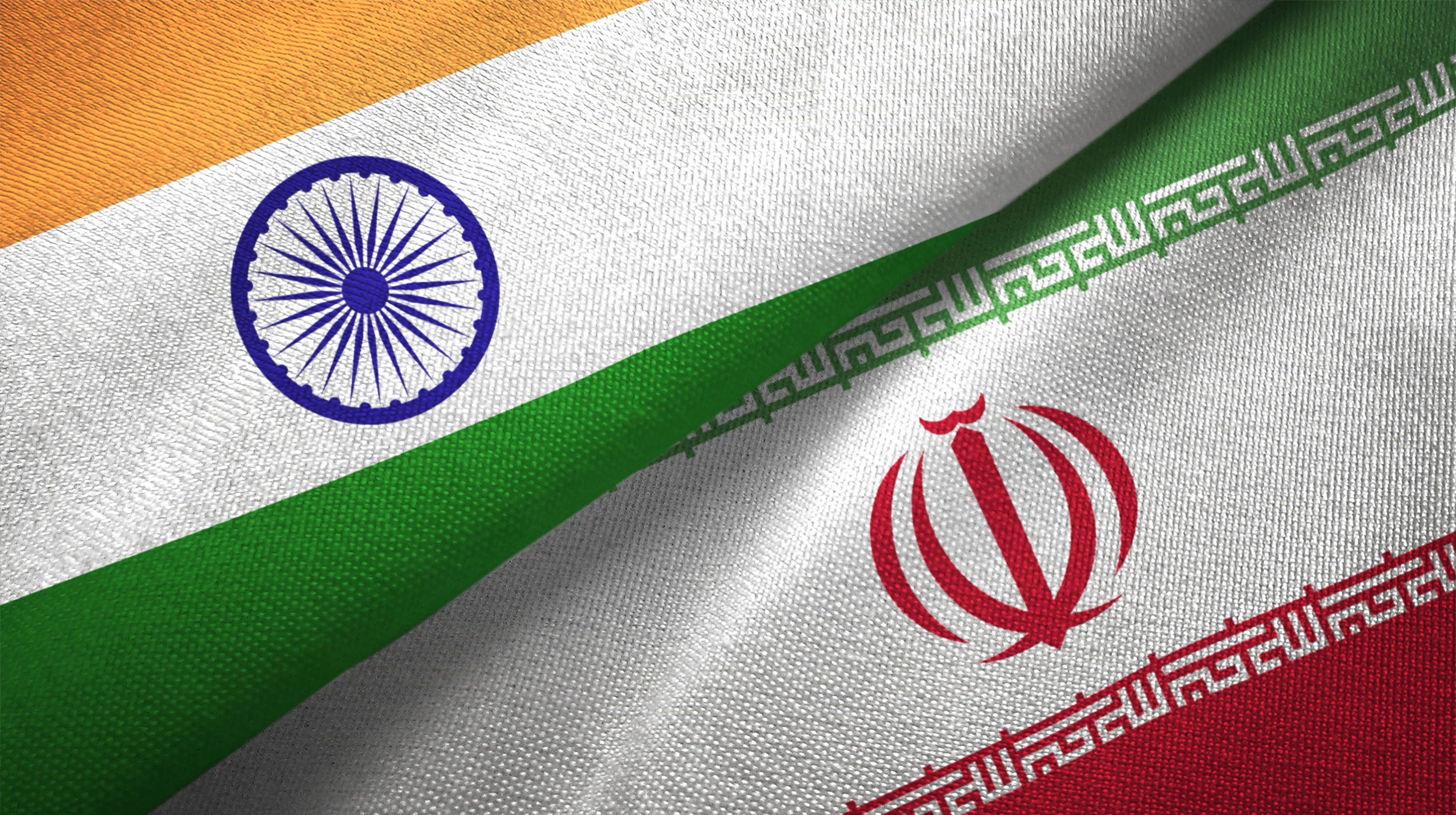
India and Iran flags
Credit: iStock Photo
India has unique interests in both Israel and Iran. As India seeks to pivot and expand arms imports beyond an increasingly deficient Russia, Israel emerges as amongst the most dependable choices for cutting-edge technology and platforms. Unlike sources in the West, Israel comes with no strings attached to its supplies. Therefore, weapons delivery from Israel have galloped by 175% between 2015 and 2020 and Delhi accounts for over 40% of all Israeli arms exports. It is a win-win relationship. Coincidentally, valourising Israel also fits well with the ideological preferences of the ruling party – a traditionally pro-Palestine (neutral at best) stance has shifted towards decidedly pro-Israeli.
Similarly, roughly 30-35 million Indian Shias of varied Shiite sub-sects imagine Iran as integral to their consciousness. Delhi’s generally healthy relations with Iran have led to the avoidance of sectarian (Sunni-Shia) tensions, as is prevalent in countries with mixed sectarian populations like Pakistan, Afghanistan or Yemen. In fact, the current dispensation has invested politically in Shia leadership (especially in Avadh region) and courted the likes of Dawoodi Bohras (offshoot of Shia faith) to countenance popular perceptions of majoritarianism. Additionally, Delhi has leveraged Iran’s civilisational and societal connect towards making common causes on the chessboard of regional geopolitics in Afghanistan, opening gateways to Central Asian Republics via the Chabahar port, or even getting Iran to bat on its behalf in forums like the Organisation of Islamic Cooperation (OIC). In short, both Israel and Iran are irreplaceable.
But there is also an incorrigible urge to posture ideological/partisan shades in almost every foreign policy act with an eye on electoral consequences. This has led Delhi to shed the necessary ambiguity and tilt in favour of Israel. While there is no official change in India’s position of a ‘two-state solution’ on the Israel-Palestine issue, its deafeningly muted assertion of the same in recent times says a lot. It had rightly slammed the despicable terror attack by Hamas on October 7, 2023 but has remained tellingly mealy-mouthed as Israelis have gone for disproportionate and undirected retaliation, causing over 43,000 Palestinian deaths (mostly children and women).
As the war spills into Lebanon (and Iran), there has been no concerted call to restraint. Perhaps, in the binaries of India’s majoritarian politics, Israel is seen as taking on the ‘other’. The religious composition in the Israeli war on Gaza Strip/Lebanon/Iran is unmistakable, and it coincides with the religious other in India, as imagined by some.
That there is a huge sectarian dimension to the Israeli enemy as it only targets Iran and its Shiite affiliates like Hezbollah and the Houthis is lost on many in India. They remain oblivious to the fact that Iran had been in the forefront of taking on forces like ISIL and Al Qaida and is fundamentally opposed to forces like Taliban or supremacist entities like the India-facing Pakistani terror groups Lashkar-e-Toiba and Jaish-e-Mohammed. This obvious misreading of the groups involved in Israel’s line of fire is conveniently left unclarified as it possibly serves an electoral purpose of lumping together the religious other.
Othering the enemy
Many partisan cadres in India remain mesmerised and galvanised by the Israeli muscularity and it feeds their imagination of the ideal way forward in sorting out an appeasement issue.
Even if the Indian dispensation has not necessarily fed falsities on the war discourse, it is duty-bound to reiterate its historical stand firmly and allay fears of misrepresentation or biases. The patronised fringe elements on social media have successfully stitched a storyline about the glorified Israeli ways with the attack on ‘others’ that seems ideologically and electorally gratifying.
What this unstated choice between Israel and Iran does is that it endangers India’s substantial interests in Iran (from Chabahar port to jointmanship in regional issues) and more worryingly, risks the interests and emotions of Shias in India (who are minorities amongst minorities). Beyond the civilisational connect, Iran has the rare distinction of doing India’s bidding in forums like OIC (by voting against Pakistan-sponsored resolutions on Kashmir). It has established a historic cause-effect relationship that is at risk again of flaring up, should India lean disproportionately in favour of Israel.
How much does the dispensation of the day value its relationship with Iran, and the accompanying stakes, at the altar of domestic politics is at test. Delhi always has the opportunity to stand up to terrorism and call out acts by belligerents like Hamas; yet, it has a duty to call out retaliatory excesses and call for restraint, in keeping with its declared stand on the vexatious Israel-Palestine issue. It need not be an either-or choice, but an ‘and’ approach. But will Delhi put its domestic electoral considerations on the back-burner when it comes to diplomacy?
(The writer is former Lt Governor of Andaman and Nicobar Islands and
Puducherry)